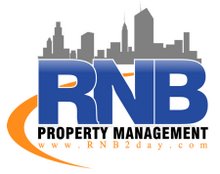When looking for rentals, today’s renters first evaluate their wants versus their needs. As the economy struggles with high unemployment rates and the future brings economic uncertainties, renters are looking to downsize into the best deal on the market. Renters are no longer willing to rent overpriced, oversized homes coupled with hefty utility bills. Many renters feel they need to take a more conservative approach toward saving more money by spending more time researching local rental rates to negotiate the best deal.
For the past two years, rents and home prices have declined, and investors are capitalizing on this downward trend by purchasing heavily discounted foreclosures. Naturally these investment properties increase Placer County’s rental housing supply, forcing landlords to compete in a rental market with an 8% vacancy rate. As the foreclosure rate slows so will the supply threat, especially because we have seen almost no new construction. Rental rates are directly connected with vacancy and unemployment rates; when the unemployment rate goes down, then vacancy rates go down because more jobs mean more people in the community. A higher population equates to more renters and less housing supply which in turn drives up rental prices (supply & demand).
Until we see the US economy bounce back, rents will continue to remain very low. So what can we do now? Tenants are looking to save as much as possible and willing to downsize. Larger homes on the market (4 to 5 bedrooms) are taking the largest hit, losing anywhere from $100 - $300 per month compared to the last two years. These homes need to be priced right and show in pristine condition. Many landlords believe that an abundance of upgrades will increase their property’s rental value, when in fact, we have found that very few renters are willing to pay a premium for the upgraded homes. Instead, we have found that when compared to a similar sized home with less upgrades, the upgraded home will rent for the same price - but will rent much faster.
Renters are aware of the recession and declining rental prices and have begun to negotiate more and more. Landlords with larger rentals have been hit the hardest as opposed to Landlords who own 3 bedroom 2 bath bread-and-butter properties. These smaller properties still remain attractive and are renting fairly easily. Every day a property sits vacant on the market is money lost. Landlords need to be aware of the current market rents and can supersede negotiations by correctly pricing their properties.
RNB Property Management specializes in the management of single family residential homes. Our agents have the experience and expertise to help you evaluate and accurately price your property so that you can maximize your cash flow.
By Robert A. Ortiz, President/CEO
For more information regarding
RNB Property Management, Inc. please call 916.435.2424 or visit us online at www.RNB2day.com
By Robert A. Ortiz, President/CEO
For more information regarding
RNB Property Management, Inc. please call 916.435.2424 or visit us online at www.RNB2day.com

